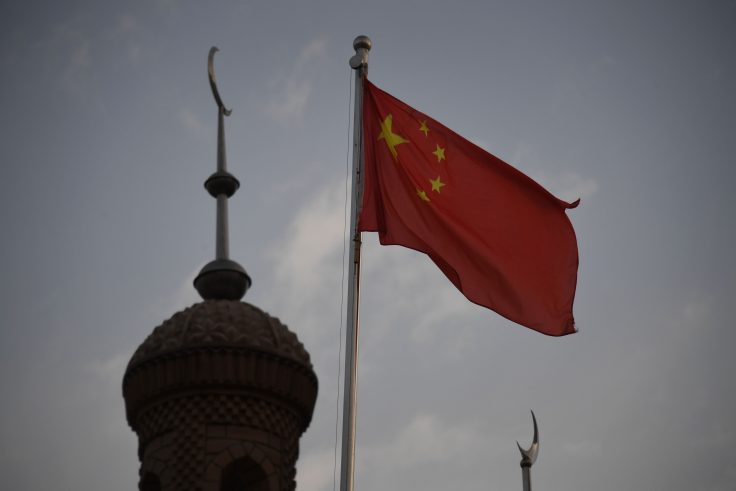China says "a majority of friendly and developing countries" at the United Nations signed on to a Cuban diplomatic statement branding China's Uighur genocide a manufactured political crisis, but there is zero documentation supporting that claim, according to a U.N. official.
"Unfortunately, the Cubans never made their list available to us," U.N. Human Rights Council spokesman Rolando Gómez told the Washington Free Beacon.
The Cuban envoy to the United Nations said in a March 12 statement to the Human Rights Council that international criticism of China's Xinjiang crackdown on Uighurs was based on "unfounded allegations made out of political motivation." Cuba claimed to be speaking "on behalf of 64 countries," a jump from the 45 countries that signed a similar resolution last October. Cuba did not identify, however, what the supporting countries were.
The Cuban embassy in Washington, D.C., and the Cuban mission to the United Nations in Geneva did not respond to a request for the signatories list.
The opaque nature of the Cuban statement could be a sign that fewer states are willing to defend China's human rights on the record, forcing China to adopt increasingly confrontational and coercive measures to tamp down on international criticism. Chinese media have already published incendiary propaganda arguing that America's history of slavery is far worse than the regime's treatment of Uighurs. Chinese nationalists are also boycotting popular Western brands, including Nike and H&M, after the companies said they will stop using cotton from Xinjiang.
Countries typically publish the signatories to their resolutions to broadcast the diplomatic support they enjoy. When 50 countries submitted a UNHRC resolution supporting China's crackdown in Xinjiang in 2019, the signatories made the letter available to the public. And when the Cubans introduced a resolution defending China in October, the country's envoy read aloud all 45 signatories.
Ivana Stradner, an international law expert at the American Enterprise Institute, said it would be highly unusual for countries to fabricate diplomatic support—but not out of the question.
"Usually these statements are written as a one-page document where they just list all signatories and a few sentences, but I couldn't find such a document," Stradner said. "I frankly wouldn't be surprised if they made things up."
The lack of transparency has caused headaches on the international stage, forcing countries such as the Maldives to swat down rumors that they were among the group that chose to praise China for its "achievements" on human rights.
The Cuban statement comes as China struggles to tamp down growing international criticism of its repression in Xinjiang. The United States, Canada, and the Netherlands have each officially recognized the Uighur genocide, with scores of Western states considering similar legislation. The growing outcry might affect China's economy as well: The genocide has convinced some Western brands to reconsider their relationship to China, with some businesses deciding to leave the country entirely.
China has historically turned to the United Nations to shore up international support. Since at least 2019, Western states and China have backed dueling statements condemning or supporting China's repressive policies in Xinjiang, according to the Diplomat. Chinese propaganda outlets regularly cited U.N. resolutions to deflect Western concerns.
"Western countries should stop imposing double standards regarding human rights," state-owned outlet Xinhua News wrote in an article that referenced Cuba's March 12 statement.
But China "sometimes bluffs" with these U.N. resolutions, according to Hillel Neuer, executive director of United Nations Watch. He pointed to another pro-China statement, delivered by Belarus in 2019, that failed to name 48 out of 54 alleged signatories.
Brett Schaefer, a Heritage Foundation expert on international organizations, said Cuba might be hiding the signatories list because it is "exaggerated" or to "avoid embarrassment for cosponsors." He said it is "highly unusual" for states to refuse to publish signatory lists, since "most countries want to know who else is supporting the letter/resolution."
The Chinese embassy did not respond to a request for comment.
